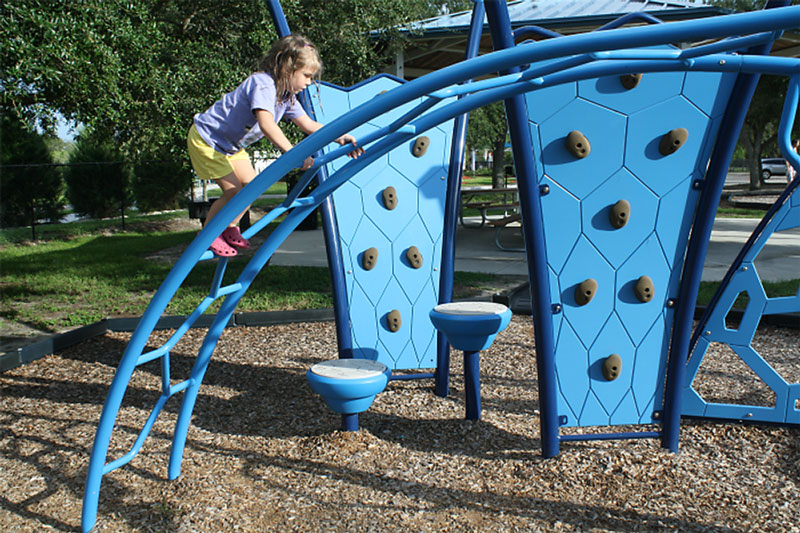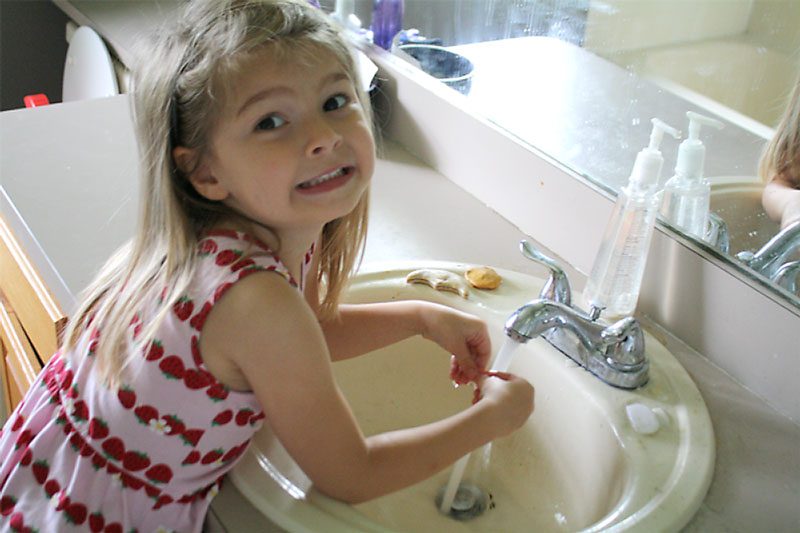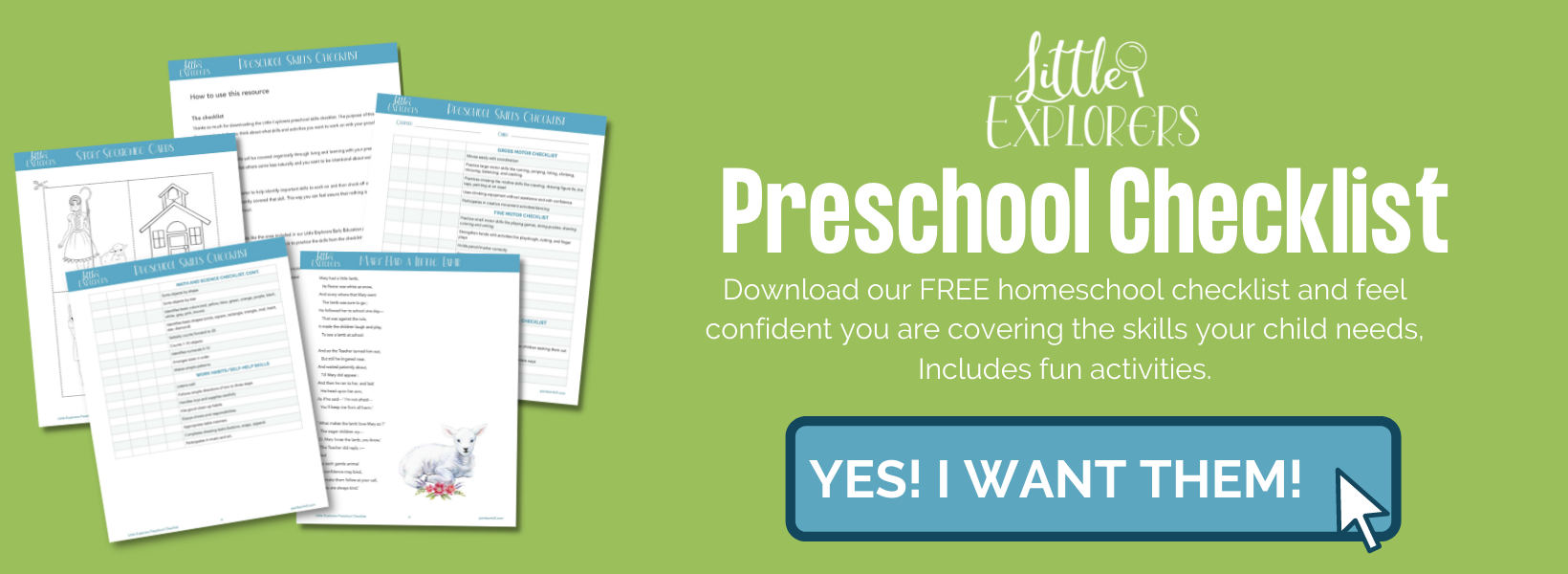
Even though social skills continue to grow and evolve throughout life, the preschool years are a critical time for their formation.
Kids who are emotionally healthy are more able to establish and maintain positive relationships with adults and peers and even demonstrate improved academic performance!
Obviously, developing these skills makes it much easier to navigate the waters of Kindergarten, but even homeschoolers can benefit from learning social-emotional tools and strategies since strengthening them helps all of life’s relationships and encourages positive attitudes and goals.
There are five main categories of social-emotional skills. Understanding each one will help you lead your child on her developmental journey!
Areas of Focus for Preschool Social Skills
Self-Awareness/Self-Concept (Your child recognizes himself as a unique individual having his own abilities, characteristics, feelings, and interests.)
- Expresses emotion easily
- Understands values and goals
- Demonstrates independence in routines and play
- Recognizes that feelings affect life
- Developing a positive self-image
Self-Management/Self-Regulation/Adaptability (Your child regulates her responses to her needs, feelings, and events.)
- Controls and manages emotions and associated behaviors
- Demonstrates impulse control
- Appropriately assertive
- Regulates emotions
- Adapts to change
Social Awareness/Accountability (Your child understands and acts in a socially-appropriate manner.)
- Communicates own feelings to others
- Notices the feelings of others
- Understands different points of view
- Empathizes with others
- Shows compassion
- Knows the difference between right and wrong and understands society norms
- Respects authority figures
- Has manners/is polite
Relationship Skills (Your child enjoys positive relationships with peers and adults and can problem-solve within social interactions.)
- Communicates effectively
- Engages in active listening
- Demonstrates cooperation
- Able to deal with peer pressure
- Can negotiate conflicts and resolve differences
- Takes turns
Responsible Decision-Making (Your child can weigh the pros and cons to determine which course to take.)
- Desires to act in an ethical manner
- Able to appropriately explore new things
- Takes safe risks
Social-Emotional Milestones
Obviously, every child is on a unique timeline, but there is a typical development sequence that’s usually followed and it can be helpful to use a checklist like this one as a guide. If you find your child is way off base with any of these milestones, it might be wise to seek further help or to spend more time working on that particular skill.
Find the CDC list of developmental milestones here
Classic Examples of Appropriate Preschool Social-Emotional Skills
What do these skills actually look like in the average preschooler? Here are some examples:
- Sings along with group
- Holds hands with friends
- Hugs a sad friend
- Shares snacks with others
- Takes turns while building with blocks
- Passes out silverware at lunch
- Recognizes personal accomplishments (“I did it by myself!”)
- Gives toys to another when asked
- Says that misses parent or family/friends who live far away
- Gets ready for bed when it’s time
- Talks on phone to relatives
- Roleplays everyday experiences
- Waits turn in line
- Puts stuffed animals to bed and instructs others to be quiet
- Completes a difficult puzzle
What Parents Can Do to Help
Plenty. In fact, I’m sharing a list of games, books and other resources on my blog that will get you off to a great start! Click on over to 15 Ways to Help Your Preschooler Develop Social and Emotional Skills to learn more!
Social-emotional development is one of the most important aspects to your preschooler’s education. Taking the time to better understand this subject helps you direct his actions as well as interactions with others to help ensure a healthy self-image and positive relationships for the rest of his life!
Are you struggling with social-emotional issues in your preschooler? As a homeschooler, do you worry that your child will miss out on developing these skills by not attending school? I’d love to hear! Either leave a comment below or email me at lisahealy (at) outlook (dot) com.
- 5 Easy Ways to Incorporate Preschool Math into Your Homeschool Day - September 29, 2022
- Preschool At Home: Calming Your Fears - August 31, 2022
- Homeschooling Your Preschooler: Social-Emotional Learning Guide - July 25, 2022



